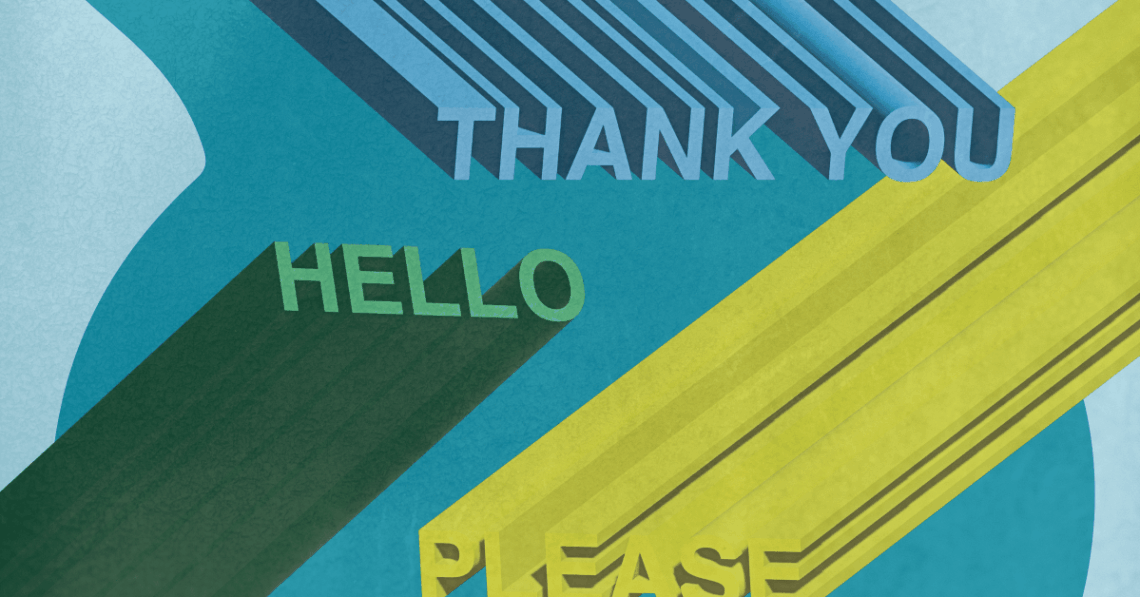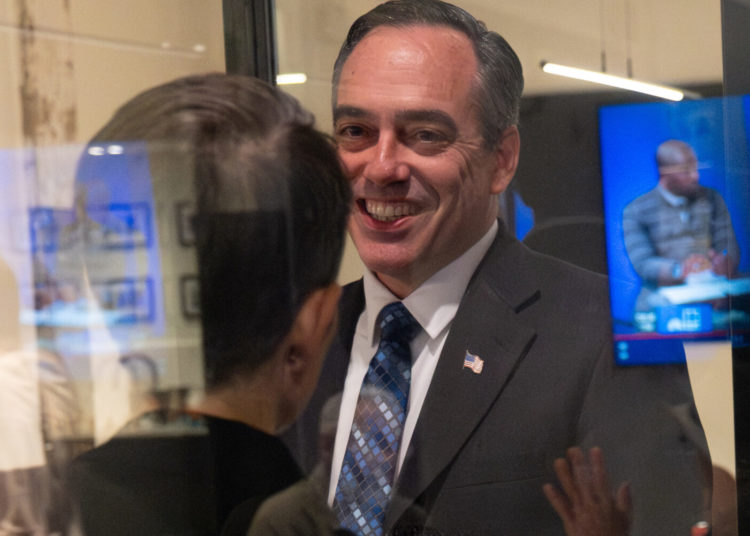May we borrow a moment of your time to review basic niceties? You might think you’ve heard them all before—because you have—but certain polite lingo is dropping out of the modern lexicon. That’s bad news for everyone, experts agree.
“It’s really important to mind our manners—and I don’t say that as a scold, but I do say it with encouragement,” says Lizzie Post, co-president of the Emily Post Institute (and great-great-granddaughter of renowned etiquette expert Emily Post). “It’s so amazing how good manners can make such an impact on other people’s days—and they catch like wildlife. That person holds the door for you, and you hold the door for the person behind you. It breaks the cycle of stress and rudeness and lack of awareness of others.”
In order to coexist as peacefully as possible, we asked Post and other experts for a refresher on which polite words still matter the most—and why.
“Hello!”
When you walk into a coffee shop in the morning, your first words shouldn’t have anything to do with your order. Start your interaction with the barista with a friendly greeting—because “not acknowledging someone’s humanity before asking them something is pretty rude,” says Nick Leighton, who co-hosts the etiquette podcast Were You Raised By Wolves?
“Greetings in some places are so important—like in France, saying ‘Bonjour’ when you walk in a store is crucial,” he adds. “In America, we walk in and we’re like, ‘Oh, give me a croissant,’ and we don’t say hello first.”
This advice transcends interactions with customer-service workers: It’s also a good idea to get in the habit of saying hello to all of the coworkers you pass when you arrive at work every day, or, for example, the receptionist in your apartment lobby.
“Please”
Saying “please” transforms a demand into a request. “It acknowledges someone’s choice of participation in something, and the impact that their participation might have on their own life,” Post says. It shows respect and consideration, and makes it clear that the other person has autonomy in whether they choose to oblige.
Read More: What to Say When You Forget Someone’s Name
Still, Post understands why, in some situations, people don’t say it. “I think we’ve leaned away from ‘please’ because we’re worried that in so many of the text messages we send daily, it can come across like, ‘Please get this done,’ because any magic word can be said the wrong way,” she says. “You can do a sarcastic please or a non-genuine please. It’s possible to make these words nasty with our tone, but when we don’t—when we use them politely and positively—they have profound effects.”
“Thank you” (with a caveat)
Rita Kirk, a professor of corporate communications and public affairs at Southern Methodist University, invites lots of guest speakers to her class. After every visit, she instructs her students to write a thank-you letter—but before forwarding them to the recipient, she reads and grades each one.
There’s an art to writing a good thank-you note, Kirk says, and rule No. 1 is that “thank you” should never be your very first words. Instead, explicitly express your gratitude by describing what the gift, insight, or time meant to you, and why you’re thankful for it. If you were sending thank-you notes after a baby shower, for example, you might write: “I cannot wait to see what the babe is going to look like in her new Western outfit. I promise to take a picture and send it to you. Thank you so much for the thoughtful gift!”
Getting into the habit of sending thank-you notes can, literally, pay off. Kirk remembers one former student who sent her a note that started like this: “Damn you.” “It was pretty funny,” she says. “She said that all those times in class when she had to write thank-you notes, she rolled her eyes and cursed my name.” Yet after graduating, the woman landed a job she really wanted, and eventually asked her employer why her name had risen to the top of the list. Her boss replied: “You were the only one who sent a thank-you note.”
“May I?”
This question is “the ultimate phrase of respect,” says Jacqueline Whitmore, an etiquette expert who founded the Protocol School of Palm Beach and author of Business Class: Etiquette Essentials for Success at Work. It’s permission-seeking rather than presumptive, which instantly softens the tone of any request, and it communicates deference and awareness of another person’s space or time.
Read More: 8 Ways to Respond to an Apology Besides ‘It’s OK’
Plus, it’s versatile enough for all kinds of situations: Use it before giving a colleague feedback on their presentation, Leighton suggests, or when ordering a meal at a restaurant. One of his pet-peeves is ordering like this: “I’ll take the salmon.” Rephrasing as “May I order…” “definitely sounds less like, ‘Fetch me this,’” he says, a kindness your server will surely appreciate.
“My pleasure”
Whitmore always opts for “my pleasure” over the more transactional “you’re welcome.” “It conveys joy in service—that the act of helping wasn’t a burden but a delight,” she says. Plus, “Rather than putting the spotlight on the other person—‘You’re welcome’—you’re taking ownership. It’s my pleasure to do that for you.”
Etiquette experts almost universally shy away from one common response to an expression of gratitude: “No problem.” “To me it sounds like there was a problem to begin with,” Whitmore says—and insinuates that someone’s “thank you” is, in a way, an apology. There’s simply no need to bring even the idea of a problem into the exchange, she says.
“Excuse me” or “pardon me”
In some ways, these phrases are like mini-apologies, Post says. If you burp, you might follow-up with an “excuse me,” and if you inconvenience someone by asking them to pull their chair in so you can squeeze by, you might issue a quick “pardon me.”
“They’re both used to excuse a mistake or acknowledge an interruption,” she says. “It’s a way of acknowledging that our behavior might not be the most polite, or to get someone’s attention.”
These two simple words, Leighton adds, signal that you’re aware of and appreciate the fact that other people exist in the world. “We could all use a little more of that,” he says.
“Friend” or “neighbor”
Terms of endearment were once used far more liberally than they are now. People would address each other as “friend” or “neighbor,” or even, in church and other situations, “brother” or “sister.” These types of terms can be attached to any greeting, question, or remark: “Hey, neighbor! Want some apples?” Or: “Hey, friend, great to bump into you here.”
Read More: 8 Things to Say During a Fight With Your Partner
“It makes both people feel good,” Kirk says. “The real message is that I see you and I value you, and those are not messages that we send very often to other people. We put up these walls to protect ourselves,” which doesn’t exactly foster a sense of community or connection.
If we make an effort to address one another with kindness and affection, on the other hand, well-being will flourish. That, dear reader, is a mission worth pursuing.
Wondering what to say in a tricky social situation? Email [email protected]
The post 7 Polite Phrases That Are Still Worth Saying appeared first on TIME.




